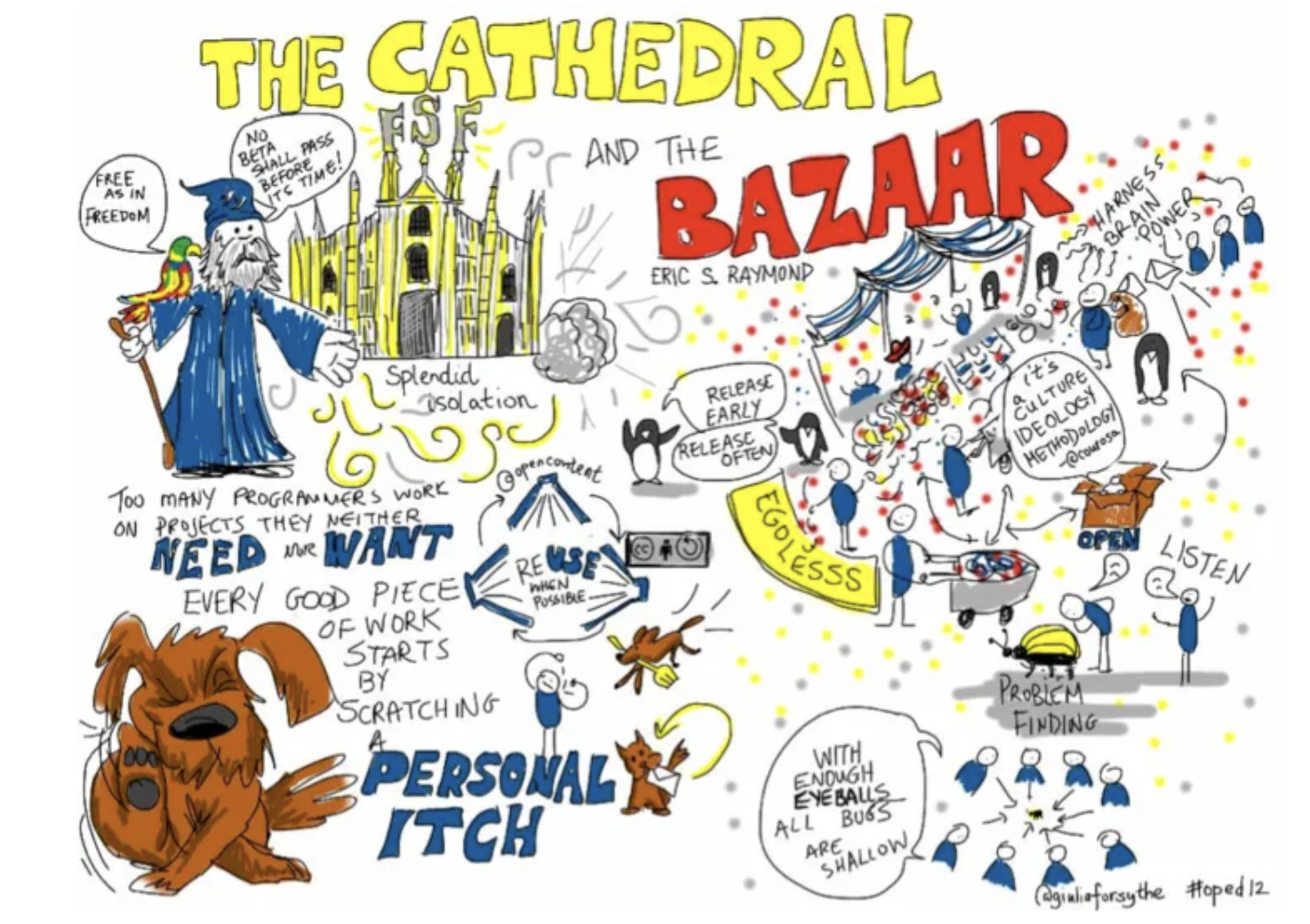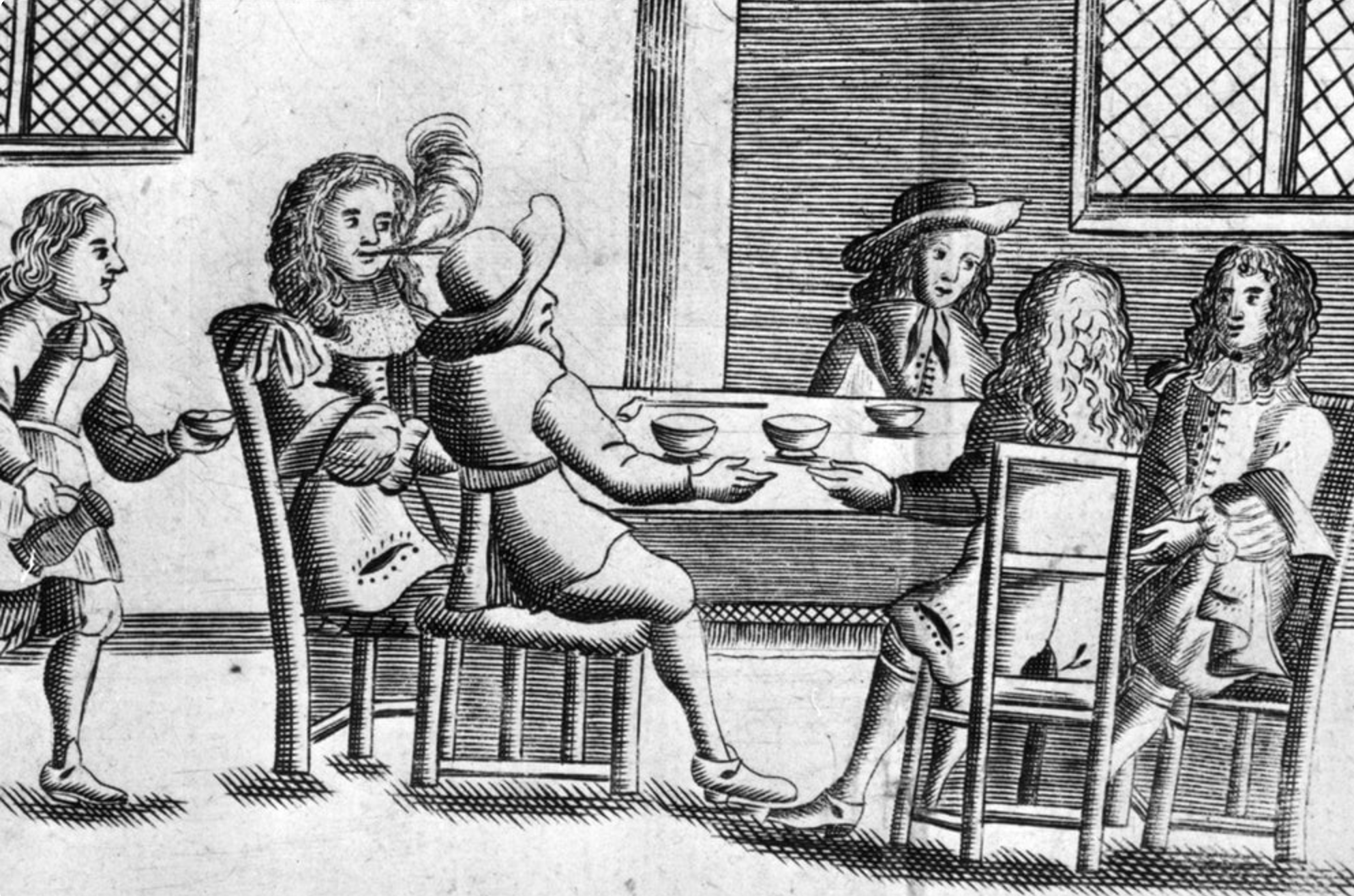Week 12 - So What is This Cathedral vs Bazaar Thing?

Reflections on the essay
Eric S. Raymond’s essay The Cathedral and the Bazaar was a very interesting deep dive into someone’s experince of trying to follow open source practices in the 90s, which was definitely a fascinating read! I was struck by how early Linux hackers experimented with distributed collaboration long before GitHub or GitLab existed. Two of Raymond’s aphorisms resonated with me in particular:
- 7. Release early. Release often. And listen to your customers.
- 11. The next best thing to having good ideas is recognizing good ideas from your users. Sometimes the latter is better.
As you could think, this essay is encourages to build a true developers’ community among the users, as that would lead to success. At Mattermost, I’ve seen these principles in action: feature requests spark lively discussions, and even hesitant core contributors remain curious and open to feedback. Take this pull request as an example—maintainers asked probing questions, weighed trade‑offs, and ultimately enriched the feature by embracing user input. Just as Raymond argues, inviting diverse perspectives early leads to more robust, user‑centered software.

Coffehouse
In Warren’s metaphor, the “coffeehouse” represents a communal space where developers gather to share ideas, troubleshoot problems, and pool resources. He draws a vivid parallel to 17th‑century London:
-
Shipping as High Tech (1688):
Maritime trade was fraught with risk—storms, piracy, lost cargo. Investors met in local coffeehouses to underwrite multiple voyages: if a ship returned safely, they shared the profit; if it sank, they absorbed the loss. This collective approach became the precursor to modern syndicates like Lloyd’s of London. - Modern Parallels:
Warren got me extremely overwhelmed during his talk about the current issues within open source, such as:
- License Mess: 73 % of open‑source projects have at least one incompatible license.
- Security Blind Spots: Abandoned or outdated dependencies leave countless vulnerabilities unpatched.
- Transitive Liability: An upstream issue becomes everyone’s problem downstream.
- The Burden on Maintainers:
Unlike early insurers who saw financial returns, today’s maintainers often receive no direct compensation—even as they shoulder immense responsibility. This mismatch fuels burnout and abandoned projects.
Brewing Community Solutions
Warren proposes two complementary remedies:
-
Grab a Cup of Coffee:
Feeling overwhelmed by security alerts, licensing headaches, or maintenance tasks? A virtual (or real) coffeehouse meetup can re‑energize you—boosting creativity, offering emotional support, and exposing you to fresh ideas. - Stand Up an Open Source Program Office (OSPO):
At the organizational level, treat open source engagement not just as cost avoidance but as an insurance policy. An OSPO can:- Vet upstream projects for license compatibility, community health, and contribution processes.
- Contribute resources—hiring technical writers, adding tests, funding foundation memberships—to keep critical dependencies alive.
- Protect proprietary IP by acting as a firewall between internal code and the external community.
- Foster a Hybrid “Coffeehouse + OSPO” Culture:
OSPOs can emulate coffeehouse dynamics by sharing dependency metrics across companies, publishing common‑project reports, and hosting regular cross‑industry forums for open discussion.
OSPOs in Action: Uber & Porsche
I was surprised to learn that Uber and Porsche support open source practices:
-
Uber:
Through Uber Open Source, Uber publishes its principles, highlights projects, and invites community contributions, while keeping its core ride‑hailing infrastructure proprietary. -
Porsche:
On the Porsche Open Source Platform, Porsche shares automotive software libraries and tools, balancing closed‑source IP with contributions to the broader ecosystem.
By combining the grassroots energy of the coffeehouse with the structure of an OSPO, organizations can cultivate healthier, more resilient open‑source communities—just as early coffeehouse patrons did centuries ago!